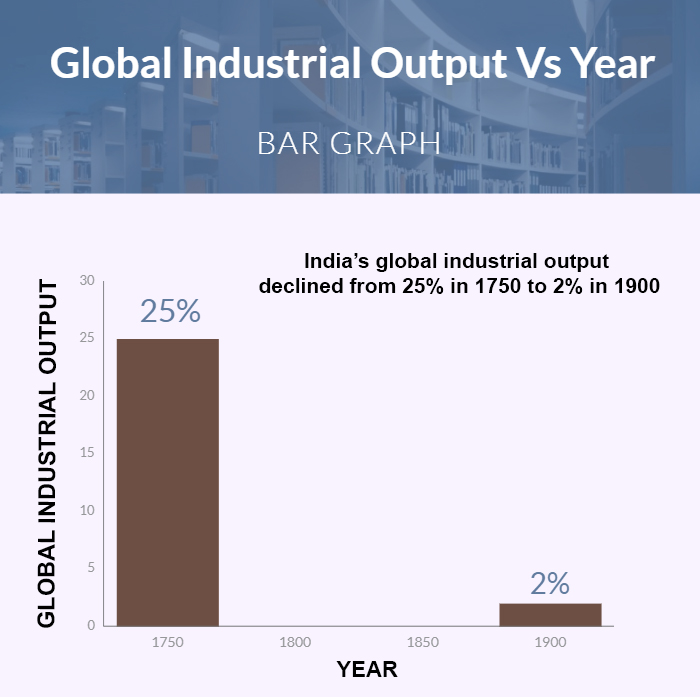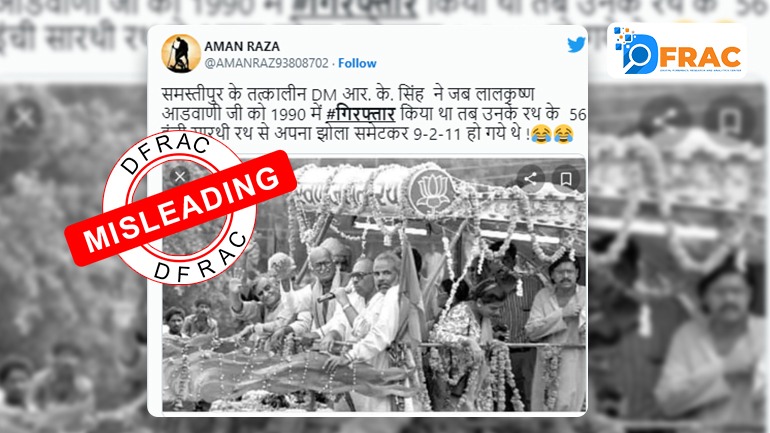On May 28, 2015, Shashi Tharoor the Indian Politician and Author, gave a speech at Oxford Union. In this speech he criticizes the British Colonial Rule for damaging the Indian economy.
Tharoor claimed that India’s share of the global economy declined from 23% to 4 % under the British. This claim is supported by the acclaimed historian Angus Maddison’s research. India’s global industrial output too declined from 25% in 1750 to 2% in 1900. Why did this happen when it is largely believed that India benefited from the British rule in introducing the country to industrialization and the ways of the modern world?


There are a lot of reasons for this apparent decline. While agriculture did expand under their rule, so did poverty and farmers who incurred debt because they were forced to cultivate opium. Opium comes from poppy and is a cash crop. This impacted at least 10 million people in the region now called Uttar Pradesh and Bihar, in completely demolishing their livelihood because of land taxes and other costs incurred upon them by the British. Thousands of Indians died at these opium factories because of lack of safety precautions.
A surprising fact to be noted here is that Indians actually made up a large chunk of the British Army during the First and Second World Wars. The first world war cost India 8 billion pounds. In addition to this, Britain owed India 1.25 billion pounds after the war ended, but this debt was never repaid.
A major clue about how Britain exploited India is witnessed in the famines that occurred during the British rule. It is estimated that about 15-30 million people died due these famines. The number of deaths could have been largely reduced had the British government not diverted resources from the region to Europe to be stored as mere “stock reserves”
The severe economic mismanagement however, was not completely overlooked by the British. Opposition party leader at the time, Edmund Burke who in 1778 began a 7 year long trial against Warren Hastings and the East India Company on the charges of economic mismanagement in India.
While it is largely believed that the British rule was responsible for deindustrialization in India, the main part of Tharoor’s speech actually focused on how the impact of this social, economic and political exploitation can be mitigated.
Reparations
Reparations are described as a kind of compensation paid for abuse or injury caused by an entity. In the past, reparations were paid by the side that lost a war which was displayed at the end of World War 1 when Germany and its allies had to pay billions of dollars in reparations. The term now is largely understood at the compensation provided to those whose human rights have been violated. Now, reparations can be of many types including sums of money to be paid to the victims or even providing them with resources that the person or the community need. Various examples of reparations have been witnessed in the past.
The government of Canada paid 350 million dollars to indigenous people of the country who faced discriminations and harassment by the hands of the government. Tharoor however points out the need for Britain to acknowledge the moral debt incurred by them rather than engaging in the act of restorative justice.
So, if Britain was to pay India back for the centuries of damage and deaths it caused to the nation, how much would that amount actually be? Renowned economist, Utsa Patnaik estimates this amount to be a whopping 44.6 trillion dollars, 20 times the size of Britain’s GDP.
Through Patnaik’s work, it is clear that Britain did not in any way develop India, but it was India who developed Britain. This independence day, we ask you a question, should Britain pay India back for all that it did to its people?





